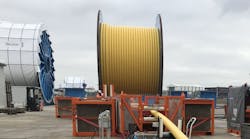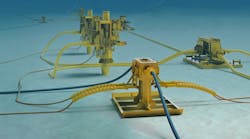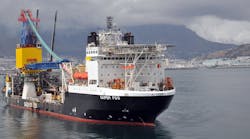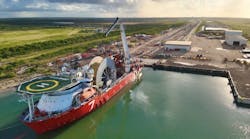Offshore staff
ABERDEEN, UK – Decom North Sea (DNS) is collaborating with Zero Waste Scotland (ZWS) and subsea engineering company Jee to develop solutions for the recovery of concrete subsea mattresses and subsequent re-use.
The trio will engage with operators and suppliers across the oil and gas industry, with DNS and Jee’s engineers conducting an economic and environmental assessment of the condition of the mattresses, and identifying the best techniques for their recovery.
Concrete mattresses provide pipelines, cables, and umbilicals with protection from dropped objects, and add weight and stabilization.
Nigel Jenkins, CEO of DNS, said: “This project was implemented in direct response to our operator member requests. What to do with mattresses as part of an efficient decommissioning solution is an often discussed ‘thorny’ issue. Leaving them in situ is not ordinarily an option, although we will revisit this.
“Mattresses were not specifically designed to be removed. Unfortunately, they can degrade underwater over time, leading to a complicated and costly removal process duringdecommissioning.”
Jee will investigate efficient removal methods that can reduce costs and maximize the benefits to the decommissioning sector (retaining materials within productive use, and in a high value state, for as long as possible). The company will also develop guidance on best practice for recovery and key points for derogation cases to leave in situ.
Dean Kirby, senior engineer at Jee, said: “Millions of pounds are being spent onUKCS [continental shelf] decommissioning each year, and this will continue for several decades. As with the majority of decommissioning projects, the recovery and disposal of subsea mattresses presents a significant obstacle and financial burden to operators and contractors globally.”
DNS will report on the findings later this year.
02/23/2015




